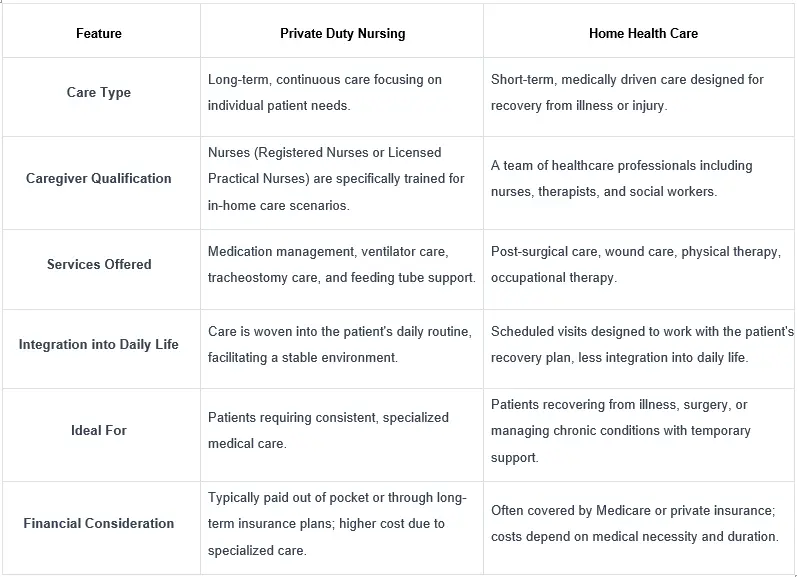Home health nurses play a vital role in the healthcare system. They provide essential medical care in the comfort of patients’ homes. This article will explore what home health nurse do during their visits, highlighting their key responsibilities and ensuring you understand their significant contributions to patient care.

Understanding Home Health Nursing
Home health nursing focuses on delivering personalized medical care at home. These nurses work with patients of all ages. They often care for those with chronic illnesses, disabilities, or those recovering from surgery. Home health nurses ensure that patients receive the necessary support to manage their health effectively. If you want to know more about how much does forta health pay parents then click here.
Key Responsibilities Of Home Health Nurses
- Conducting Assessments
During their visits, home health nurses assess patients’ health conditions. They check vital signs, review medications, and evaluate overall well-being. This assessment helps them create personalized care plans. - Administering Medications
Home health nurses administer medications as prescribed by doctors. They ensure that patients take the correct doses at the right times. This helps manage chronic conditions and prevent complications. - Providing Wound Care
For patients recovering from surgery or injury, home health nurses provide wound care. They clean and dress wounds, monitor for signs of infection, and educate patients on proper care techniques. - Educating Patients and Families
Education is a crucial part of a home health nurse’s role. They teach patients and their families about managing health conditions. This includes understanding medications, recognizing symptoms, and making lifestyle changes. - Coordinating Care
Home health nurses coordinate with other healthcare professionals. They communicate with doctors, therapists, and social workers to ensure a holistic approach to patient care. This collaboration helps provide comprehensive support. - Assisting with Daily Activities
Some patients may require assistance with daily activities. Home health nurses help with tasks such as bathing, dressing, and meal preparation. This support enhances patients’ quality of life and independence. - Monitoring Progress
Home health nurses regularly monitor patients’ progress. They document changes in health status and adjust care plans as needed. This ongoing evaluation ensures patients receive the best possible care.

Important Points About Home Health Nursing
| Key Aspect | Details |
|---|---|
| Personalized Care | Tailored services that cater to individual patient needs. |
| Interdisciplinary Collaboration | Coordination with doctors, therapists, and social workers for comprehensive care. |
| Patient Education | Teaching patients and families about health management and medication adherence. |
| Insurance Coverage | Many services are covered by Medicare and Medicaid, making it accessible for families. |
| Flexibility | Home health nurses adapt to the unique challenges of each patient’s home environment. |
| Technology Integration | Use of telehealth and monitoring devices to enhance care delivery. |
| Impact on Quality of Life | Support for patients’ independence and well-being significantly improves their quality of life. |
Types Of Home Health Services
Home health nursing offers various services, including:
- Physical Therapy: Helping patients regain strength and mobility.
- Occupational Therapy: Assisting with daily living skills.
- Speech Therapy: Supporting communication and swallowing needs.

How To Choose A Home Health Nurse
Selecting the right home health nurse is crucial. Here are some tips:
- Assess Qualifications: Verify the nurse’s credentials and experience.
- Understand Services Offered: Ensure they provide the specific care you need.
- Read Reviews: Look for testimonials from previous patients.
- Verify Insurance Coverage: Confirm that the services align with your insurance plan.
Insurance And Payment Options
Home health care is often covered by Medicare, Medicaid, and private insurance plans. Medicare typically covers home health services for eligible patients who meet specific criteria, such as needing skilled nursing care or therapy following a hospital stay. Medicaid also provides coverage, but eligibility varies by state.
Patients should check their coverage options carefully. Understanding co-pays, deductibles, and out-of-pocket expenses is crucial for managing health care costs. It’s essential to verify whether the home health agency you choose is in-network with your insurance provider.
In addition to insurance coverage, many home health agencies offer flexible payment plans. This can make services more accessible for families who may struggle with upfront costs. Some agencies may also provide sliding scale fees based on income or offer assistance in navigating financial aid options.
Overall, patients and families should communicate openly with their home health providers about insurance and payment options. This transparency helps ensure that individuals receive the necessary care without financial strain.

Frequently Asked Questions (FAQs)
What qualifications do home health nurses have?
Home health nurses typically hold an associate’s or bachelor’s degree in nursing and must be licensed to practice in their state.
How often will a home health nurse visit?
Visit frequency depends on the patient’s needs, ranging from daily visits to weekly check-ins.
Can family members participate in the care?
Yes, family involvement is encouraged. Nurses often educate and train family members to assist with care.

Real-Life Impact
Home health nurses play a crucial role in transforming their patients’ lives. For example, one family recounted how their home health nurse helped their elderly mother regain independence after hip surgery. Initially, the patient struggled with mobility and daily tasks. The home health nurse provided tailored exercises, taught safe movement techniques, and assisted with rehabilitation.
The nurse’s support and guidance were vital in enhancing her quality of life. By offering emotional support and encouragement, the nurse helped alleviate anxiety related to recovery. They also educated the family on proper care techniques, empowering them to take an active role in their mother’s recovery.
This compassionate care not only facilitated recovery but also restored the family’s confidence in managing health at home. The family expressed gratitude for the nurse’s ability to create a personalized care plan, which was instrumental in their mother’s progress. Such stories illustrate the profound impact home health nurses have, often leading to improved health outcomes and stronger family dynamics.
Furthermore, testimonials from other families highlight similar experiences. Many emphasize how home health nurses foster a supportive environment, making patients feel valued and understood. These professionals are not just caregivers; they become trusted allies in the journey toward better health and well-being.
Challenges Faced By Home Health Nurses
While rewarding, home health nursing presents unique challenges. Nurses often encounter unpredictable environments and diverse patient conditions. They must quickly adapt to changing situations, which can range from managing acute health crises to addressing emotional and psychological needs.
Additionally, home health nurses may work in settings with limited resources, requiring creativity and resourcefulness to provide quality care. They must also maintain clear communication with families and other healthcare providers to ensure comprehensive support.
Despite these challenges, many nurses find the experience fulfilling, knowing they make a significant impact on their patients’ lives.

Future Of Home Health Care
The home health care industry is rapidly evolving due to technological advancements. Telehealth services are making healthcare more accessible by allowing home health nurses to conduct virtual visits, reducing the need for travel, especially for patients with mobility issues.
Remote monitoring devices, such as wearables, enable healthcare providers to track vital signs and activity levels in real-time. This allows for timely interventions and early detection of potential health risks, improving patient outcomes.
Additionally, electronic health records (EHRs) facilitate seamless communication among home health nurses, doctors, and specialists, ensuring coordinated care for complex cases.
As the industry continues to change, home health nurses will adapt to new tools and methodologies while focusing on personalized care. Ongoing training will be essential to effectively use these advanced technologies, ensuring that patients receive high-quality care in the comfort of their homes.
Conclusion
Home health nurses are essential in delivering quality healthcare at home. They conduct assessments, administer medications, provide wound care, and educate patients and families. Their coordination with other healthcare professionals enhances patient care. By understanding the role of home health nurses, you can appreciate the vital support they provide to patients and families. If you or a loved one requires home health services, consider reaching out to a local home health agency to explore available options. Your health and well-being deserve the best care possible.
Call To Action
Are you or someone you know in need of home health services? Take the first step toward better health today. Research local home health agencies and inquire about their services. Quality care is just a call away!

